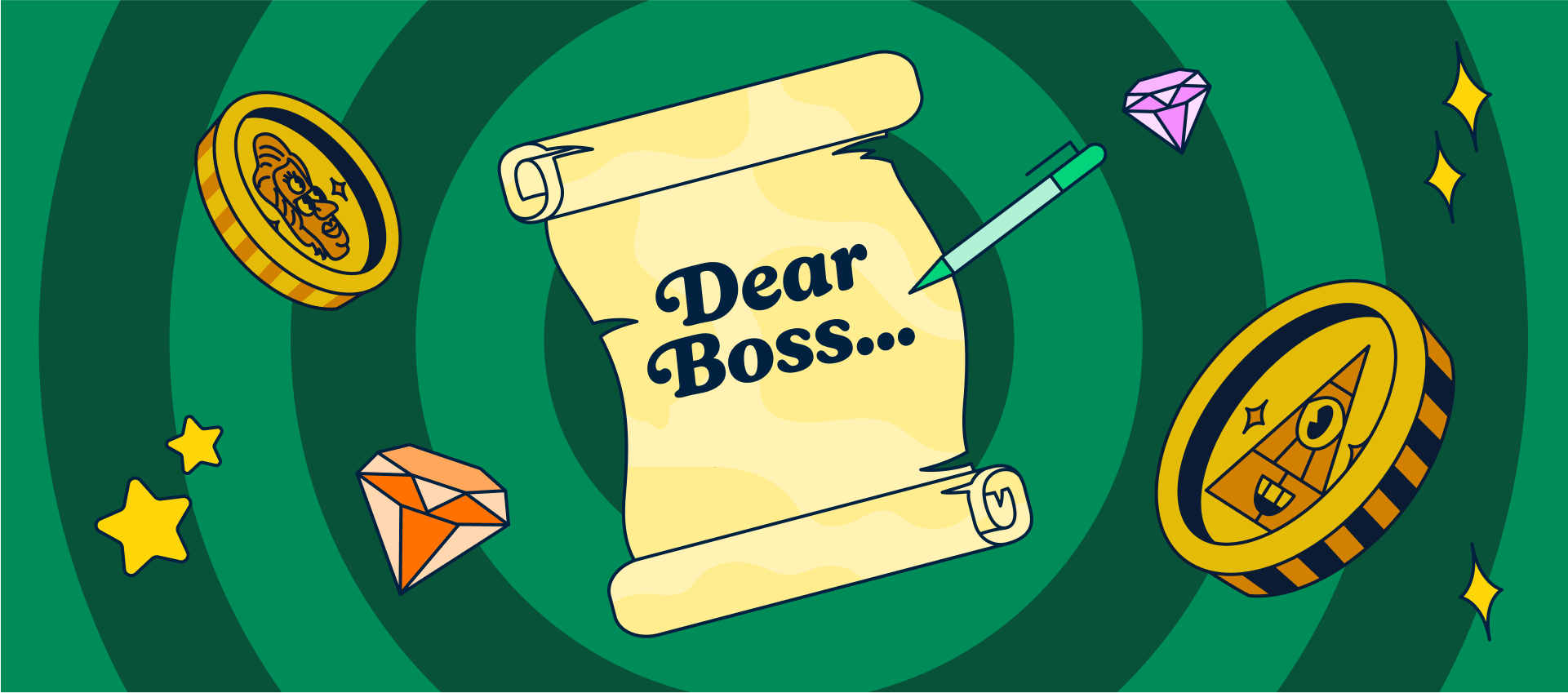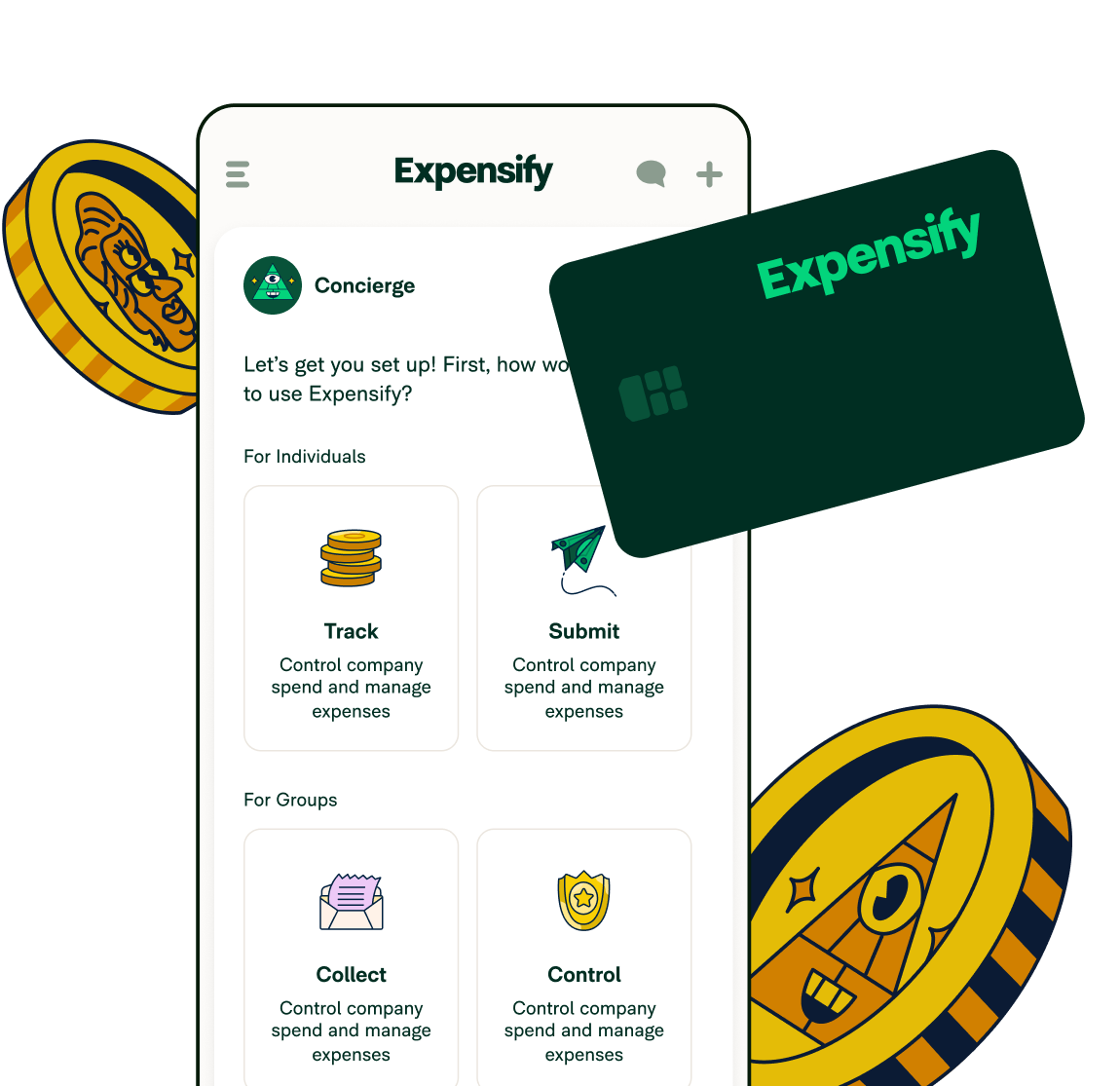How to write a request letter to attend a seminar (+ free template)

A request letter for attending a seminar is not just a formality; it's a strategic tool to justify your need to participate in the event. This letter should not only convince your boss of the inherent value of the seminar but also address the practical aspects of cost and logistics, like expense reports and reimbursements.
In this article, we'll guide you through the essential steps of crafting a persuasive request letter, complete with tips and a free template to help you get started. Let’s break down six steps to writing the perfect conference justification letter below!
1. Gather necessary background info
Gather as much information as possible before drafting your letter of request to attend a conference. This step is important for two reasons: first, it helps you build a strong case for why attending the event is beneficial, and second, it prepares you to answer any follow-up questions your boss might have.
Consider these key aspects while researching:
Event details: Look into the size, location, date, and agenda of the event. Check if any notable keynote speakers, workshops, or breakout sessions align with your professional interests or the company's goals.
Attendee profile: Understand who typically attends the event. Are they professionals from your industry? Knowing the attendee profile can help you argue the networking potential of the conference.
Previous success stories: If the event is annual, look for success stories or testimonials from previous years. This can provide insight into the event's reputation and effectiveness.
Unique opportunities: Identify any unique opportunities the event offers, such as workshops for specific skills, panels with industry leaders, or networking sessions that could lead to potential partnerships or client relationships.
Alignment with professional goals: Consider how the event aligns with your current role and responsibilities. How will attending help you achieve your professional goals or contribute more effectively to the team?
By collecting this information, you're preparing to write a compelling letter and demonstrating your initiative and strategic thinking to your manager. A win-win!
2. Write a brief event overview
Once you’ve finished your research, it's time to start drafting your conference justification letter! The first part of your letter should include a brief but informative overview of the event. This is your chance to set a positive tone and immediately interest your manager.
Begin with these key elements:
Professional salutation: Address your manager formally, using their name and title. This sets a respectful and professional tone for your request.
Event description: Provide a concise description of the event. Include the name, date, location, and event summary. You can paraphrase this information to give an accurate picture if you've found a compelling description from the event's website or promotional materials.
Statement of purpose: This is a crucial part of your letter. You should clearly articulate why you are interested in this particular seminar or conference. Explain how it relates to your current role or career aspirations. A well-crafted statement of purpose can catch your manager's attention and set the stage for the following arguments.
This section of your letter is not just about providing information; it's about building a persuasive case for your attendance. Ensure this part of the letter is clear, concise, and compelling.
3. Explain the benefits of the event
It could be helpful to incorporate the following points:
Skill enhancement and knowledge gain: Detail how the sessions and workshops at the event will enhance your skills or provide you with new knowledge directly applicable to your job — beneficial to the business.
Relevance to current projects or goals: Draw connections between the event's content and your current projects or the company's strategic goals, demonstrating the immediate value of your attendance.
Competitive advantage: Discuss how insights from the event could give your company a competitive edge, whether through implementing new technologies, strategies, or industry best practices.
Long-term benefits: Outline the long-term benefits of attending, such as staying ahead in industry trends, fostering continuous learning, and enhancing team expertise through shared knowledge.
Remember, the goal here is to make it clear that attending the conference isn’t just good for you but good for the entire company. Be specific about how the event can contribute to both your growth and the organization's success.
4. Emphasize Networking or Career Building Opportunities
Take time in your letter to shine a spotlight on these opportunities, focusing on the following key aspects:
Professional networking: Explain how connecting with other professionals in your field can lead to knowledge exchange, potential collaborations, or even new business opportunities. Emphasize the value of expanding your professional network.
Learning from industry leaders: Mention how interacting with thought leaders and experts at the conference can provide insights and perspectives that you can bring back to your team.
Career development: Discuss how the event aligns with your career growth. Whether it's acquiring new skills, getting exposed to different roles in your field, or understanding industry trends, explain how this contributes to your long-term professional development.
Brand representation: By attending, you will be representing your organization, potentially raising its profile within the industry and bringing back valuable contacts and information.
5. Discuss cost and reimbursement
An essential part of your conference justification letter involves a clear and honest discussion about the financial aspects of attending the seminar event. This section should address the cost implications and how you plan to manage expenses while you travel.
Consider including the following points:
Detailed cost breakdown: Provide a clear breakdown of the expected expenses, including registration fees, travel costs, accommodation, and other related expenses. Being upfront about this shows that you've thought through the financial implications.
Explain how you'll manage expenses: Describe your approach to keeping track of expenses, explaining how you'll record and report costs, track miles, and keep up with receipts. This could include apps or software designed for expense tracking, highlighting your commitment to organization and fiscal responsibility — even while you're on the road.
Cost-effective planning: Talk about the importance of finding the most economical options for travel and lodging that align with the company's budget and policies.
Investment vs return: Highlight that the investment in attending the conference is justifiable by the potential returns in knowledge, networking opportunities, and business leads, which can far outweigh the initial costs.
By addressing the costs and your plan for managing them efficiently, you assure your manager of a well-considered and cost-effective approach to attending the conference!
6. Conclude with a prompt for further discussion
You're almost there! The final part of your letter should wrap up your request with a tone of appreciation and openness to keep the conversation going. Include these key points to drive your request home:
Express gratitude: Begin by thanking your manager for considering your request. This shows respect and appreciation for their time and the potential opportunity.
Reiterate key points: Briefly summarize the main arguments of your letter. This reinforces why attending the conference is beneficial and reminds your manager of the value it can bring to the team and organization.
Encourage open discussion: Invite your manager to discuss the request further. This could be through a formal meeting or a casual conversation. Indicate that you are open to answering any questions or providing additional information.
Professional closing: End your letter with a professional closing, such as "Sincerely" or "Best regards," followed by your name and contact details, ensuring your letter remains professional and courteous.
A well-crafted conclusion leaves a lasting positive impression and demonstrates your professionalism and eagerness for a constructive dialogue about your professional development. Whose manager doesn’t love that?
Ready to get started on your request? Download our letter of justification template below for a head start!
Simplify every aspect of professional development with Expensify
A well-argued request letter combined with the right tools for managing expenses can make a compelling case to your boss.
With Expensify in your back pocket, you simplify expense tracking and ensure a smooth and policy-compliant trip — no matter where your career might take you.
Ready to craft your conference justification letter? Download our free template today!





